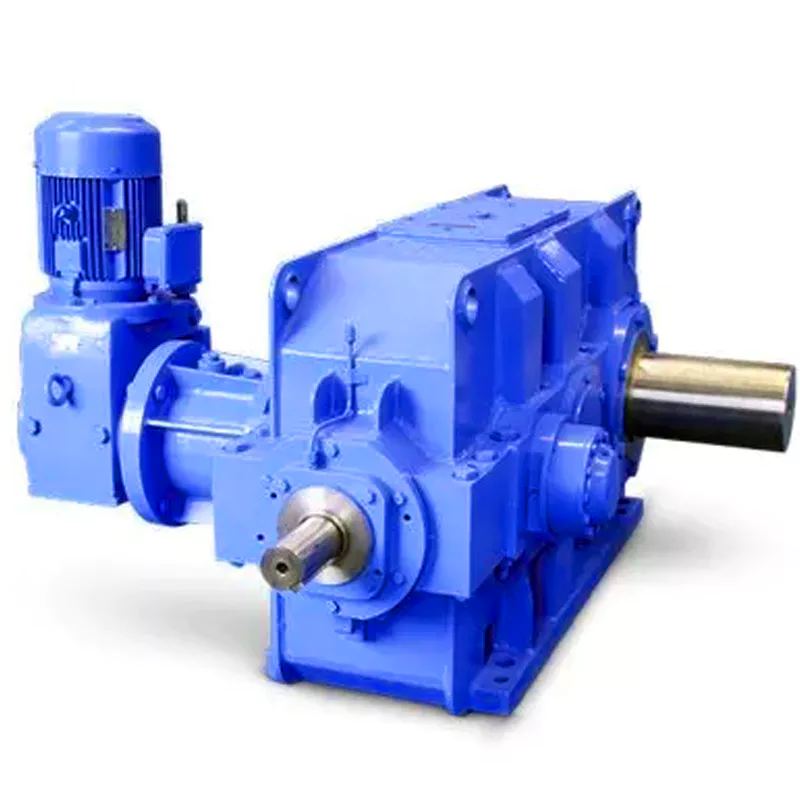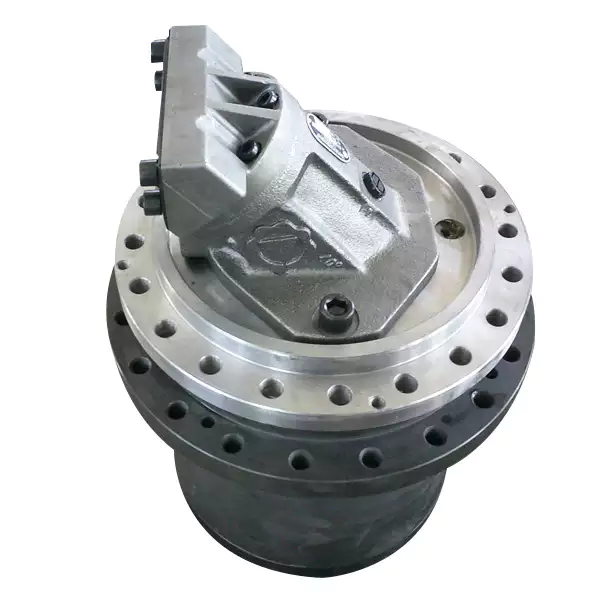Product Description
Industrial Gearbox China Reducer High Rpm Helical Transmission Speed Drive Reduction Electric Motor Transmission Prices Variator CHINAMFG Excavator Worm Gearbox
Application of Industrial Gearbox
Industrial gearboxes are used in a wide variety of applications where high torque and low speed are required. Some of the most common applications include:
- Material handling: Industrial gearboxes are used in material handling equipment, such as conveyors, cranes, and hoists.
- Machine tools: Industrial gearboxes are used in machine tools, such as lathes, milling machines, and drills.
- Robotics: Industrial gearboxes are used in robotics, such as industrial robots and automated guided vehicles (AGVs).
- Mining: Industrial gearboxes are used in mining equipment, such as crushers, conveyors, and pumps.
- Wind turbines: Industrial gearboxes are used in wind turbines, to transmit power from the blades to the generator.
Industrial gearboxes are a versatile type of gear reducer that can be used in a wide variety of applications. They are characterized by their high torque, low speed, and compact size.
Here are some of the advantages of using industrial gearboxes:
- High torque: Industrial gearboxes can generate a high torque, making them ideal for applications where a lot of force needs to be applied.
- Low speed: Industrial gearboxes can operate at a low speed, making them ideal for applications where noise and vibration need to be minimized.
- Compact size: Industrial gearboxes are typically compact and lightweight, making them easy to install and maintain.
- Durability: Industrial gearboxes are designed to withstand high loads and harsh environments.
Overall, industrial gearboxes are a valuable tool for a variety of applications. They offer a number of advantages that can help to improve safety, efficiency, and productivity.
Here are some additional details about the applications of industrial gearboxes:
Material handling: Industrial gearboxes are used in material handling equipment to transmit power from the motor to the load. This allows the equipment to move materials at a controlled speed and torque.
Machine tools: Industrial gearboxes are used in machine tools to transmit power from the motor to the cutting tool. This allows the cutting tool to operate at a high speed and torque, which is necessary for cutting through tough materials.
Robotics: Industrial gearboxes are used in robotics to transmit power from the motor to the robot’s joints. This allows the robot to move its joints at a controlled speed and torque, which is necessary for performing tasks such as picking and placing objects.
Mining: Industrial gearboxes are used in mining equipment to transmit power from the motor to the load. This allows the equipment to move materials at a controlled speed and torque, which is necessary for mining operations.
Wind turbines: Industrial gearboxes are used in wind turbines to transmit power from the blades to the generator. This allows the generator to generate electricity at a controlled speed and torque, which is necessary for providing power to homes and businesses.
Industrial gearboxes are a vital part of many different industries. They help to improve safety, efficiency, and productivity by transmitting power from the motor to the load in a controlled and efficient manner.
/* January 22, 2571 19:08:37 */!function(){function s(e,r){var a,o={};try{e&&e.split(“,”).forEach(function(e,t){e&&(a=e.match(/(.*?):(.*)$/))&&1
| Application: | Motor, Electric Cars, Motorcycle, Machinery, Marine, Toy, Agricultural Machinery, Car |
|---|---|
| Function: | Distribution Power, Clutch, Change Drive Torque, Change Drive Direction, Speed Changing, Speed Reduction, Speed Increase |
| Layout: | Three-Ring |
| Hardness: | Hardened Tooth Surface |
| Installation: | Torque Arm Type |
| Step: | Stepless |
| Samples: |
US$ 9999/Piece
1 Piece(Min.Order) | |
|---|

Contribution of Industrial Gearboxes to Energy Efficiency
Industrial gearboxes play a significant role in enhancing energy efficiency across various machinery and equipment applications. Their contribution to energy efficiency is notable in several ways:
1. Speed and Torque Conversion: Industrial gearboxes facilitate the conversion of high-speed, low-torque input to low-speed, high-torque output. This conversion allows machinery to operate at optimal speeds while maintaining the required power, reducing energy wastage.
2. Matching Load and Power: Gearboxes enable the selection of the most efficient operating speed and torque for a specific load. This matching of load and power requirement minimizes excess energy consumption and enhances overall efficiency.
3. Load Distribution: In multi-component systems, gearboxes distribute the load among different components, ensuring an even distribution of work and preventing overloading. This load distribution helps avoid energy losses due to inefficient load handling.
4. Reducing Inefficiencies: Gearboxes help mitigate energy losses caused by mechanical inefficiencies in the transmission system. By optimizing gear design and reducing friction losses, gearboxes ensure effective power transmission.
5. Variable Speed Control: Some industrial gearboxes offer variable speed control, allowing machinery to operate at different speeds as required by the application. This flexibility enhances energy efficiency by adapting to changing operational demands.
6. Regenerative Braking: Certain gearbox systems, like regenerative gearboxes, enable the recovery of energy during braking or deceleration. This captured energy can be reused or fed back into the system, reducing overall energy consumption.
7. Improved Machine Design: Gearboxes contribute to the optimization of machine design, ensuring that components work together harmoniously. Properly designed gear systems minimize energy losses due to misalignment or improper component matching.
8. Reduced Heat Generation: Efficient gearboxes generate less heat during operation, minimizing energy losses associated with heat dissipation and improving overall energy efficiency.
9. Longer Equipment Lifespan: Properly selected and maintained gearboxes improve equipment reliability and lifespan. This prevents premature equipment failure and the associated energy waste from frequent repairs or replacements.
10. Energy Monitoring and Management: Some modern industrial gearboxes come with integrated sensors and monitoring systems that provide real-time data on energy consumption. This data helps operators optimize machinery usage for energy efficiency.
Collectively, these contributions highlight the vital role that industrial gearboxes play in enhancing energy efficiency, reducing energy consumption, and promoting sustainable operations across various industrial sectors.

Factors to Consider When Selecting the Right Industrial Gearbox for an Application
Choosing the appropriate industrial gearbox for a specific application requires careful consideration of various factors to ensure optimal performance, reliability, and efficiency. Here are the key factors to consider:
- Load and Torque Requirements: Determine the maximum load and torque the gearbox will need to handle in the application.
- Speed Range: Consider the required speed range for both input and output shafts.
- Operating Conditions: Evaluate the environmental conditions, such as temperature, humidity, and presence of dust or chemicals.
- Space Constraints: Take into account the available installation space and clearance requirements.
- Efficiency: Choose a gearbox with the appropriate efficiency rating to minimize power losses.
- Noise and Vibration: Consider noise and vibration levels, especially in applications where low noise is crucial.
- Service and Maintenance: Assess ease of maintenance, accessibility for repairs, and availability of replacement parts.
- Mounting and Alignment: Ensure compatibility with the existing machinery and proper shaft alignment.
- Cost and Budget: Balance performance requirements with budget constraints.
- Expected Lifespan: Choose a gearbox with a suitable lifespan for the application’s durability needs.
- Gearbox Type: Select the appropriate gearbox type (helical, bevel, worm, etc.) based on the application’s specific requirements.
By carefully considering these factors and consulting with gearbox experts, you can make an informed decision and choose the right industrial gearbox that meets the unique demands of your application.

Benefits of Using an Industrial Gearbox in Heavy-Duty Applications
An industrial gearbox offers several benefits when used in heavy-duty applications, where robust and reliable power transmission is essential:
- High Torque Handling: Industrial gearboxes are designed to handle high levels of torque, making them well-suited for heavy-duty tasks that require substantial force and power.
- Durability and Longevity: Heavy-duty gearboxes are constructed from rugged materials and designed to withstand harsh operating conditions, ensuring extended service life and reduced maintenance requirements.
- Load Distribution: Gearboxes distribute the load across multiple gears, reducing the strain on individual components and promoting even wear, which is crucial in heavy-duty applications.
- Efficient Power Transmission: Industrial gearboxes efficiently transmit power between input and output shafts, ensuring minimal power loss and maximizing overall system efficiency.
- Flexibility in Speed and Torque: Heavy-duty gearboxes offer the flexibility to adjust speed and torque by selecting appropriate gear ratios, allowing for precise control over machinery performance.
- Adaptability to Varying Conditions: Industrial gearboxes can adapt to changing load conditions, making them suitable for applications with fluctuating requirements.
- Reduced Downtime: The durability and reliability of industrial gearboxes contribute to reduced downtime and increased operational uptime, enhancing productivity.
- Customization: Gearboxes can be customized to meet specific heavy-duty application needs, ensuring optimal performance and compatibility.
Overall, industrial gearboxes play a pivotal role in heavy-duty applications by providing robust power transmission, durability, and versatility to meet the demands of challenging tasks.


editor by CX 2024-04-25